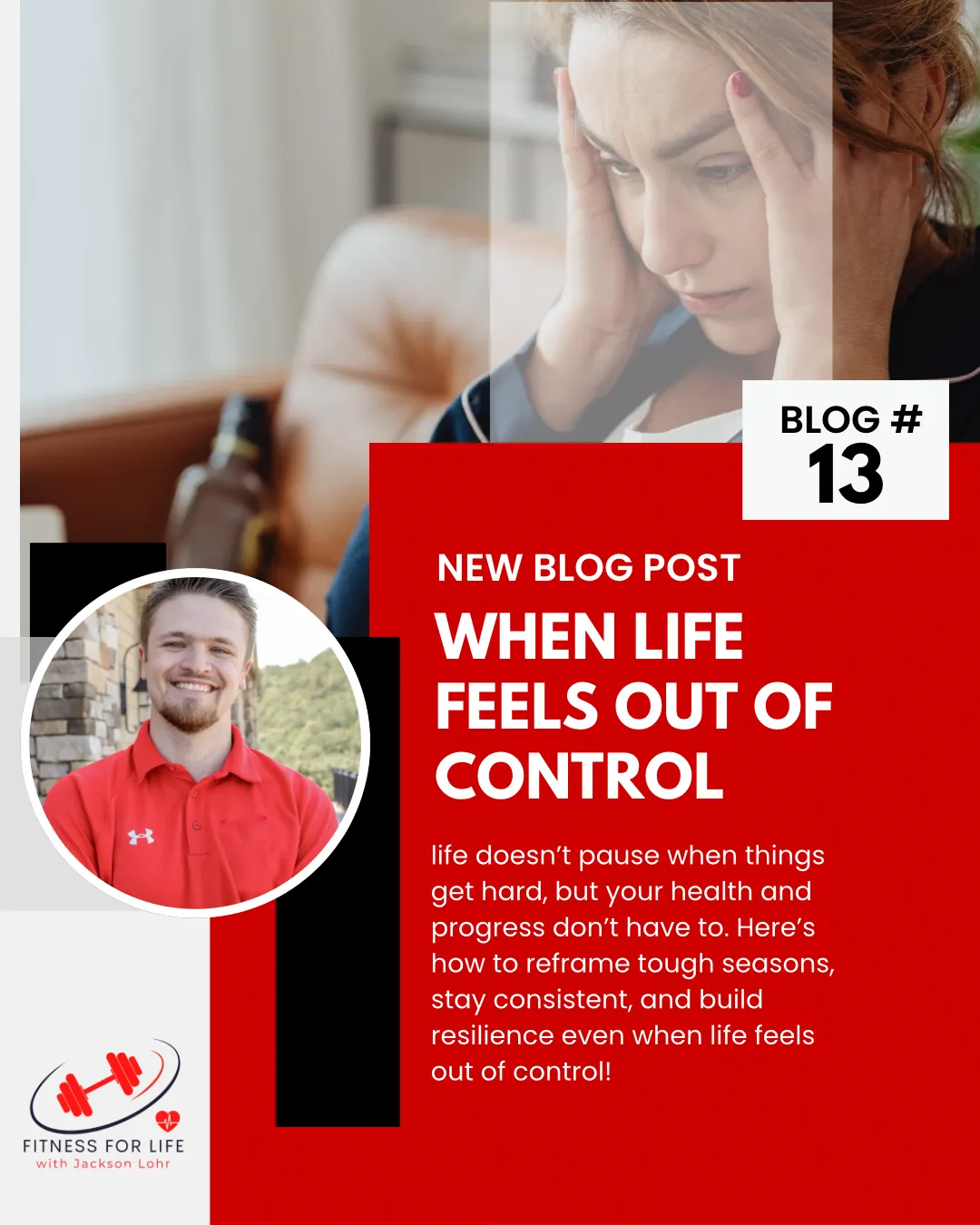
Managing Your Health When Life Feels Out of Control
When Life Feels Out of Control
You're hurt, you're sick, or something in life is simply getting in the way. Let's talk about how to reframe the situation and still get results during a time that life feels more chaotic and out of control.
There are plenty of circumstances that can make life busier and harder on us. As a father of a strong-willed toddler with another child on the way working two jobs, I promise I understand the struggle. You might have that same scenario. You might be hurt or sick. You might be caring for someone who is. Or you might be adjusting to lots of change in your life—death of a loved one, moving homes or states, caring for both an ailing parent and a child.
No matter which it is, that is a lot for someone to deal with! And it comes with changes to your ideal routine. Now, I'm not here to throw you a pity party. I'm here to help—so here's what to do about it.
Step 1: Recognize the Suck
It's not fun having to deal with this when your friend is telling you about how she's lost 40 pounds this year on Ozempic and "you should totally try it" (no shame to anyone on it for health-related reasons, it's a great tool for the right person).
But that doesn't mean you have to just succumb to the sadness your situation calls for. If anything, this means that your situation requires you to do more—because if you give in to the feeling of "oh, well," you’ll be much worse off as a result of the situation you're currently going through.
Instead, recognize the situation as it is. You cannot control it. You can only make the most of it. So here's a few steps as to how:
Step 2: Gratitude First
Write down 1–3 things each morning that you're grateful for. This can be hard at first but gets easier over time. It doesn't have to be anything groundbreaking, and it doesn't have to be anything new or original. It can be a person's friendship, your job, a roof over your head, or just simply waking up in the morning.
This practice will help reframe things so you start each day by seeing the positives rather than reflecting on the negatives of your circumstances. Over time, the goal is not necessarily to see more positives, but rather to view the world through a less negative perspective.
(FYI: deleting your social media accounts and getting away from the news can help with this too.)
Step 3: Control the Controllables
Whenever I'm working with clients who are going through challenging circumstances, I'm often finding myself giving this advice. The execution of it may look different for everyone—from managing nutrition to maintaining an adequate sleep routine and everything in between.
Usually, it involves focusing on just one or two simple daily tasks that keep progress moving (albeit minimally) or help maintain health goals at a minimum—with the option to add in more when life, time, and energy permit.
The key here is twofold: awareness and persistence.
When taking this approach, it’s important to understand that this often leads to either maintenance of your current health state or slow progress in the direction you want to go. That’s not failure—that’s the cost of progress during a demanding season.
The other component is persistence and planning. You cannot accidentally fall into a pattern of maintaining good health when the world is asking too much of you elsewhere. You have to be intentional, fight against the urge to let things slide, and do so for weeks or months on end.
It goes without saying: this is hard.
It is also worth it.
Every time you show up for yourself and care for yourself builds resilience—not just through increasing confidence in your ability to manage obstacles, but also by caring for your health so you can be present for those around you in the ways you want to be.
Step 4: Balance Grace and Accountability
When things go wrong, it's easy to say to yourself, "I should be doing XYZ." It's also easy to get stuck in the mindset that your actions might not matter in a season where things aren't going your way.
Where I see most people have success is when they can strike the right balance of grace for themselves and accountability to what they can manage.
Without grace, you'll run yourself ragged trying to do everything and be everything to everyone.
Too much grace and not enough accountability, and you'll be far worse off than when you started—losing progress you’d worked hard to achieve and becoming less resilient in the process.
When you acknowledge what’s within your control and take responsibility for it during a challenging season, not only can you continue to make progress, but you’ll also develop unshakeable confidence and resilience that will serve you well no matter what obstacles you face.
